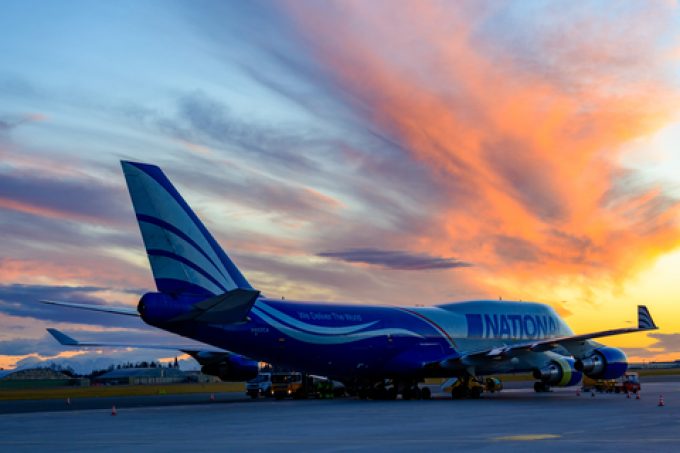Carriers juggling capacity and port congestion 'taking us back to the dark days'
Shipping’s response to the Red Sea crisis is to reduce capacity to an extent far ...

On-demand charters have proved pivotal in supporting B747 freighter operations at National Airlines Cargo – but availability of the type is limited so the carrier might look elsewhere for future acquisitions, it revealed.
National still plans to add more 747s, particularly factory-built 747Fs. Currently, it operates three 747-400s with nose-loader capabilities, including one extended range variant, and six 747-400BCFs.
“We want to add more factory-built freighters in the coming months,” Nihal Wickrema, VP strategy and revenue optimisation, told The Loadstar.
“Unfortunately, there is limited availability of factory-built 747-400Fs, so, with a focus on continuous growth and sustainability, we are looking at all possibilities.”
The attraction of nose-loading capabilities on the -400Fs versus the economics of quad jets continues to be debated, but Mr Wickrema reckoned the addition of nose-loader freighters has helped penetrate the off-size cargo sector, especially with long pieces that will not fit through a side cargo door, which was not possible with the 747-400BCF fleet.
He said with the reduced numbers of AN-124 and IL-76 aircraft in circulation, the 747 fleet additions had made available charter capacities for various defence, government, oil and gas, aircraft and aerospace customers.
“The 747 freighters’ operational advantage and capacity are hugely significant for numerous customers that are regularly involved in transporting bulky and irregularly shaped cargo.”
To cater for the requirements of on-demand charters and ad-hoc business for e-commerce, electronic, auto parts and industrial equipment, the airline believes the 747 freighter has the competitive edge due to main deck contour compared to the twin engine peers. Additionally, the frequent requirements of the US Department of Defense (DoD), which regularly requires unique loading and shipping capacities, and the cargo being built in 463L pallets, is easily possible with the 747 freighter.
The DoD issued contracts worth $873m to around 20 US carriers in January for work between 1 April this year and 30 September 2028. Among them, only National, Atlas Air and Kalitta operate 747s, making the type particularly useful for them and keeping them in government contract work.
According to Mr Wickrema, currently, the market is short of airfreight capacity, with many carriers increasing single-aisle jet operations due to operating costs. He said twin-engine freighters suffer huge losses when it comes to skid traffic [a single deck pallet] since the main deck contour will not allow a double top layer, which ends up losing two layers on both sides compared with the 747 freighters.
“Vulnerable cargo like mobile phones, electronics and e-commerce items cannot be loosely loaded due to security and quick handling at the airport,” he said. “And the loss in volume, especially with skid traffic, can’t be compensated by the fuel burn advantage from twin engines comparedwith the 747.”
With no double-deck freighters in sight following the end of production, Mr Wickrema thinks the 747s will be required until OEMs build bigger aircraft again. He suggested: “The Beluga has operational constraints which makes them not yet ready to take over 747 traffic.”
National Airlines is globally renowned for its 747 freighter operations and when discussing alternatives like the 777, Mr Wickrema provided some technical comparisons: for example, when compared with a 777 freighter, the total cargo volume of the 747 (739 cu metres) is much more voluminous than a 777 (652 cu m).
“This can’t be negated when considering the load ability of odd-sized and bulk cargo on 747 freighters. The nose-loading capability is a significant addition when operating charter flights for specific missions, on routes that are not often seen on the commercial flights map,” he said.
Looking ahead, National sees an opportunity to modernise the fleet, creating more efficient operational eco-systems and, in the future perhaps, seek other types like the A350, 777F and 747-8F.
Mr Wickrema added: “However, with the current market demand for our customer groups, the 747 freighter fleet serves those shipping requirements well and enables a more comprehensive on-demand charter business.”
Comment on this article